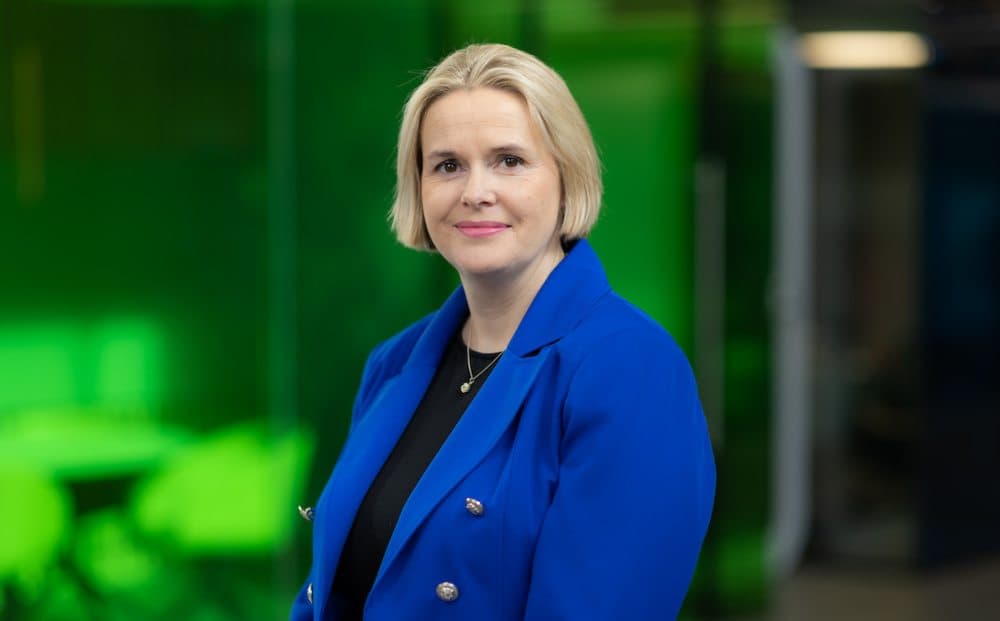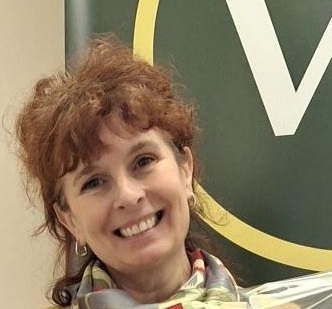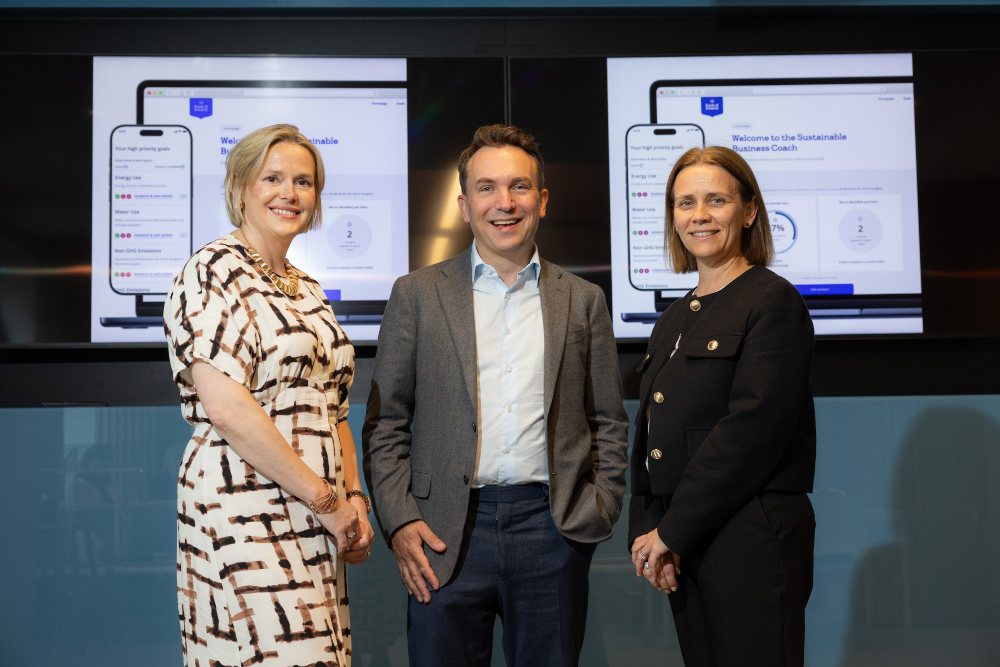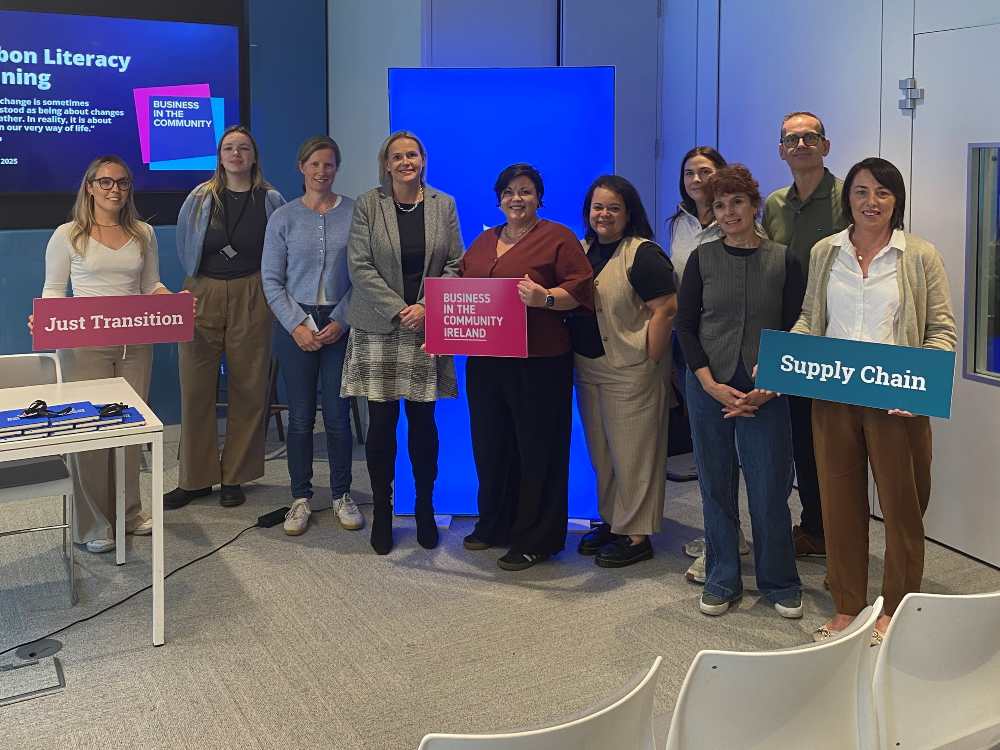We talk to some of the participants in Phase 2 of the BITC Climate Action Programme about how it is already driving change in their businesses.
Next week 40 SME businesses from a plethora of industries will graduate from Phase 2 of Business in the Community in Ireland’s (BITCI) Climate Action Programme for SMEs in collaboration with partners Bank of Ireland, ESB and SSE plc.
The programme provides significant positive outcomes, including increased awareness and actionable steps towards carbon reduction among participating businesses.
“As Ireland strives to meet its legislated Climate Action Plan targets, SMEs who are allocated roughly half of the national greenhouse gas emissions need to be supported”
Partaking firms will receive:
- Accredited Carbon Literacy Training
- Support with measuring carbon emissions
- Practical planning for the future
- Peer-to-peer and cross-sector learning
We caught up with Bank of Ireland’s director of Sustainability Colette Shirley to discuss the impact the programme is making as well as two businesses, Willows Ingredients and Poppies Café to get a sense of how the programme is impacting how they approach sustainability.
Closing the ESG knowledge gap
Bank of Ireland’s director of Sustainability, Colette Shirley
“The purpose of the Business in the Community Carbon Literacy Programme is to equip Bank of Ireland and Ireland’s SMEs with the essential knowledge and practical tools they need to measure, understand and reduce their carbon footprint,” Shirley said.
“Through accredited carbon literacy training, businesses learn how to calculate and record their emissions, develop bespoke climate action plans and engage with peers and larger corporate partners on sustainability initiatives.
“By closing the ESG (environmental, social and governance) knowledge gap that over 70% of SMEs have identified, the programme enables participants to future-proof their operations and be ready for any regulatory requirements incoming. The programme combines in-person training and online workshops to deliver a comprehensive learning experience.
“SMEs attend accredited carbon literacy sessions led by certified facilitators at BOI’s training facilities before moving on to virtual workshops where they apply those lessons to calculate emissions specific to their operations. Each participant receives one-on-one advisory support to translate their carbon data into a practical, sector-tailored sustainability roadmap. On successful completion, firms graduate with Carbon Literacy Certification, a recognised qualification that validates their commitment to climate action and opens doors to sustainability-focused partnerships and markets,” Shirley said.
She explained that improving the carbon literacy of our SMEs is imperative for achieving our National and European targets.
“As Ireland strives to meet its legislated Climate Action Plan targets, SMEs, who are allocated roughly half of the national greenhouse gas emissions need to be supported.
“Sustainability requires collective action across all sectors. By equipping SMEs with the knowledge and tools to understand and act on their carbon impact, we unlock the potential of over two-thirds of the Irish workforce to contribute to climate action. This can generate a ripple effect across industries and communities, amplifying the impact of sustainability efforts and delivering exponential benefits.
“On a more granular level, improving carbon literacy empowers SMEs to recognise the strategic value of sustainability. It enables them to make informed decisions about investing in green technologies, energy efficiency, and sustainable practices – decisions that can enhance long-term resilience, competitiveness, cost savings and talent retention.
Initiatives like the BITCI Carbon Literacy Programme play a pivotal role in shaping an SME landscape capable of responding to the climate challenge. This grassroots approach to education and enablement is pinnacle to our agenda at Bank of Ireland.
“We have provided a series of lending and sustainability supports to empower SME customers to decarbonise their businesses. In May of this year we launched our Sustainable Business Coach platform, an easy-to-use digital platform designed to help Irish businesses understand sustainability. This free-to-use online tool will guide and support SMEs by providing simple tips and a practical plan. Sustainable Business Coach allows users to summarise their current sustainability position, identify areas to take action and make progress, benchmark against peers and use the sustainability report the basis for your own sustainability strategy or policy and to communicate with stakeholders. “
Maura Lavelle, marketing manager, Willows Ingredients
When we were invited to take part in the BITC Climate Action Programme for SMEs, we saw it as an opportunity to step back and really understand what sustainability means for our business and for the wider industry we operate in.
“Sustainability” is a term that’s used a lot, but it can mean very different things to different people. For us, one of the biggest benefits of the programme has been learning to define it in a way that’s both authentic and achievable for Willows Ingredients. It is helping us move from broad ideas to specific actions that will have a tangible impact both on our business and on the planet.
“The Climate Action Programme has given us not just the tools but the confidence to move forward. It’s helping us make sustainability not just a commitment on paper, but a core part of who we are and how we operate”
Through the programme, we’ve gained greater clarity and focus on shaping our sustainability policy. We’re now better equipped to identify what real wins look like not just in theory, but in practice. We aim to create a sustainability strategy that is realistic, measurable, and firmly embedded in our day-to-day decision-making.
At Willows, we’ve deliberately built relationships with supply partners who share our values and demonstrate strong sustainability and ESG credentials. Our Managing Director and founder, David Scrivens, has over 40 years’ experience in the health and nutrition industry, and throughout that time he’s been a consistent advocate for working with partners that show real longevity and commitment to sustainable business models.
Long before terms like CSRD or ESG reporting became common language, David was focused on aligning with suppliers who prioritised traceability, accountability, and a positive impact on both people and the planet. Partners such as Huve Pure, Vinh Wellness, Pepcol, and Gelprime are excellent examples companies that understand that sustainability isn’t a box-ticking exercise, but a long-term responsibility.
Before this programme, we hadn’t really considered carbon literacy in a meaningful way. It sounded technical, even daunting. But the course broke it down into plain English helping us understand not just the terminology, but the mindset shift required to reduce our carbon impact truly.
Carbon reporting is a new and evolving area for us, and we are integrating it into our financial reporting processes to ensure transparency and accountability. Alongside measuring our direct (Scope 1) and indirect (Scope 2) emissions, we are developing systems to capture and assess our material Scope 3 emissions in line with the GHG Protocol and current CSRD requirements. Our value chain is complex, spanning multiple regions and partners, and we are actively engaging with our global suppliers to improve data accuracy, enhance visibility, and identify opportunities to reduce emissions across our shared supply chain.
Of course, the regulatory landscape from CSRD to CSDDD is constantly evolving. It can feel like a moving target, and in many ways, we’re all still learning. But what’s clear is that there’s a growing coalition of the willing, individuals, businesses, and communities all working towards the same goal. When millions of people make conscious, greener choices, the whole system begins to shift for good.
The programme is helping us to:
- Focus our sustainability goals on what’s most achievable and impactful for our business.
- Build the framework for a robust, actionable sustainability policy.
- Communicate more effectively with our internal and external stakeholders about our journey.
- Educate our teams and partners about what sustainability really means and how everyone can contribute.
Ultimately, the Climate Action Programme has given us not just the tools but the confidence to move forward. It’s helping us make sustainability not just a commitment on paper, but a core part of who we are and how we operate.
Peter Norton, owner, Poppies Café
Our motivation for joining BITC’s Climate Action Programme for SMEs comes from a genuine desire to make our café more sustainable and environmentally responsible. We see every cup of coffee, every delivery, and every choice of ingredient as an opportunity to do better for the planet. Taking part in this programme allows us to understand the real impact of our operations and to learn how we can reduce our carbon footprint in practical, achievable ways.
Carbon literacy is especially important in the hospitality sector because cafés like ours have direct and indirect environmental impacts — from energy use and food waste to supply chains and packaging. Understanding these emissions gives us the knowledge and confidence to make smarter decisions, such as choosing local suppliers, reducing waste, switching to renewable energy, and engaging our customers in sustainable practices. It’s also a way to show leadership in our community and inspire positive change through everyday actions.
Experience and Learning So Far
The program was incredibly valuable. We’ve learned how to measure and understand our carbon footprint — not just from energy use, but also from food sourcing, transport, and waste. It’s helped us identify our main carbon “hotspots” and see where small changes could make a big difference.
“For us, carbon literacy isn’t just about compliance – it’s about creating a café that aligns with our values and contributes positively to our community and the planet”
We’ve particularly benefited from the discussions with other SMEs and local businesses, sharing ideas on how to balance sustainability with the realities of running a small café. The resources and expert guidance have made the concept of carbon reduction feel much more achievable and relevant to our day-to-day work.
Applying What We’ve Learned
We’re already taking steps to apply what we’ve learned. This includes reviewing our suppliers to prioritise local and seasonal produce, cutting down on single-use packaging, improving energy efficiency in our kitchen and café equipment, and finding creative ways to reduce food waste. The importance of having a baseline for our carbon footprint was highlighted and gave us a line in the sand so to speak so we can make real comparisons year to year.
We also want to communicate our sustainability journey to our customers – helping them understand that every coffee or meal can be part of a more sustainable future.
For us, carbon literacy isn’t just about compliance – it’s about creating a café that aligns with our values and contributes positively to our community and the planet.
-
Bank of Ireland is welcoming new customers every day – funding investments, working capital and expansions across multiple sectors. To learn more, click here
-
For support in challenging times, click here
-
Listen to the ThinkBusiness Podcast for business insights and inspiration. All episodes are here. You can also listen to the Podcast on:
-
Spotify
-
SoundCloud
-
Apple







